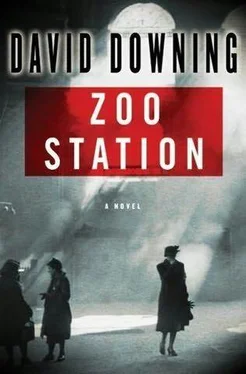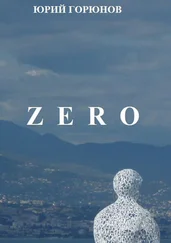David Downing - Zero Station
Здесь есть возможность читать онлайн «David Downing - Zero Station» весь текст электронной книги совершенно бесплатно (целиком полную версию без сокращений). В некоторых случаях можно слушать аудио, скачать через торрент в формате fb2 и присутствует краткое содержание. Жанр: Шпионский детектив, на английском языке. Описание произведения, (предисловие) а так же отзывы посетителей доступны на портале библиотеки ЛибКат.
- Название:Zero Station
- Автор:
- Жанр:
- Год:неизвестен
- ISBN:нет данных
- Рейтинг книги:5 / 5. Голосов: 1
-
Избранное:Добавить в избранное
- Отзывы:
-
Ваша оценка:
- 100
- 1
- 2
- 3
- 4
- 5
Zero Station: краткое содержание, описание и аннотация
Предлагаем к чтению аннотацию, описание, краткое содержание или предисловие (зависит от того, что написал сам автор книги «Zero Station»). Если вы не нашли необходимую информацию о книге — напишите в комментариях, мы постараемся отыскать её.
Zero Station — читать онлайн бесплатно полную книгу (весь текст) целиком
Ниже представлен текст книги, разбитый по страницам. Система сохранения места последней прочитанной страницы, позволяет с удобством читать онлайн бесплатно книгу «Zero Station», без необходимости каждый раз заново искать на чём Вы остановились. Поставьте закладку, и сможете в любой момент перейти на страницу, на которой закончили чтение.
Интервал:
Закладка:
He heard Frau Heidegger come in, the clink of the bottles as she set them beside her door. It was Tuesday, Russell realized-skat night. With Effi not working, and his own weekends given over to espionage, he was beginning to lose track of the days. He went down to warn her about his expected call, and paid the price in coffee.
Back upstairs, the hours ticked by with agonizing slowness, and the only calls were for Dagmar, the plump little waitress from Pomerania who had taken McKinley’s room. She, not unusually, was out. According to Frau Heidegger she sometimes came in at 3:00 in the morning with beer on her breath.
Russell nipped out to buy some eggs while Frau Heidegger kept guard, and cooked himself an omelette for dinner. Most of the other tenants returned home from work, and the concierges arrived, one by one, bottles in hand, to play skat. The waves of merriment reached higher up the stairs as the evening went on, but the telephone refused to ring, and Russell felt his anxiety grow. Where was Albert? Sitting in some border lockup waiting to be picked by the Gestapo? Or lying dead in some frozen mountain meadow? If so, he hoped the boy had managed to take some of the bastards with him.
The skat party broke up soon after 10:30, and once the other concierges had passed noisily into the street Frau Heidegger took the phone off the hook. Russell went to bed and started reading the John Kling novel which Paul had loaned him. The next thing he knew, it was morning. He walked briskly down to Hallesches Tor for a paper, skipping through it on the way back for news of spies or criminals apprehended on the border. As he replaced the phone a red-eyed Frau Heidegger emerged with an invitation to coffee, and they both listened to the morning news on her people’s radio. The Fьhrer had recovered from the slight illness which had caused the cancellation of several school visits on the previous day, but no young Jews named Albert had been picked up trying to cross into Czechoslovakia.
The morning passed at a snail’s pace, bringing two more calls for Dagmar and one from Effi, wanting to know what was happening. Russell had no sooner put the phone down after her call than it rang again. “Forgot something?” he asked, but it was Albert’s voice, indistinct but unmistakably triumphant, which came over the line.
“I’m in Prague,” it said, as if the Czech capital was as close to heaven as its owner had ever been.
“Thank God,” Russell shouted back. “What took you so long?”
“We only came across last night. You’ll tell my mother?”
“I’m on my way. And they’ll be on the train tomorrow.”
“Thank you.”
“You’re welcome. And good luck.”
Russell hung up the phone and stood beside it, blissfully conscious of the relief spreading out through his limbs. One down, three to go. He called Effi back with the good news and then set off for the Wiesners.
Frau Wiesner looked as if she hadn’t slept since he had left her on Monday, and when Russell told her Albert was in Prague she burst into tears. The two girls rushed to embrace her and started crying too.
After a minute or so she wiped her eyes and embraced Russell. “A last coffee in Berlin,” she said, and sent the two girls out to buy cakes at a small shop on a nearby street which still sold to Jews. Once they were out of the door, she told Russell she had one last favor to ask. Disappearing into the other room, she reemerged with a large framed photograph of her husband and a small suitcase. “Would you keep this for me?” she asked, handing him the photograph. “It is the best one I have, and I’m afraid they will take it away from me at the border. Next time you come to England…”
“Of course. Where is he, your husband? Did they bury him at Sachsenhausen?”
“I don’t know,” she said. “I did not tell you this, but on Monday, after the visa came, I gathered my courage, and I went to the Gestapo building on Prinz Albrechtstrasse. I asked if his body could be returned to me, or if they could just tell me where he is buried. A man was called for, and he came down to see me. He said that my son could claim my husband’s body, but I could not. He said that was the legal position, but I knew he was lying. They were using my husband’s body as bait to catch my son.”
Sometimes the Nazis could still take your breath away.
“And this,” she continued, picking up the suitcase, “is what you asked for on Monday.” She put it on the table, clicked it open, and clicked again, revealing the false bottom. “The man who made this was a famous leather craftsman in Wilmersdorf before the Nazis, and he has made over a hundred of these since coming to Friedrichshain.”
“And none have been detected?”
“He doesn’t know. Once Jews have left they don’t come back. A few have written to say that everything went well, but if it hadn’t…”
“They would be in no position to write.”
“Exactly.”
Russell sighed. “Well, thank you anyway,” he said, just as the girls came back with a box of assorted cream cakes. They insisted on Russell having the first pick, then sat round the table happily licking the excess cream from their lips. When he suggested driving them to the station the next day, he could see how relieved Frau Wiesner was, and cursed himself for not putting her mind at rest at sooner. How else could they have gotten there? Jews were not allowed to drive, and most cabdrivers wouldn’t carry them. Which left public transport, and a fair likelihood of public abuse from their fellow passengers. Not the nicest way to say goodbye.
The train, she said, was at 11:00, and he was back the next morning at 9:30. The girls squeezed into the back with their small bags, Frau Wiesner in the front with a suitcase on her lap, and as they drove down Neue Konigstrasse toward the city center Russell could feel all three of them craning their necks and filling their memories with the sights of their disappearing home.
Effi was waiting at the Zoo Station entrance, and all five of them walked up to the westbound express platform. A pale sun was shining, and they stood in a little knot waiting for the train to arrive.
“You didn’t tell me Albert was going to Palestine,” Russell said to Eva Wiesner.
“I should have,” she admitted. “Distrust becomes a habit, I’m afraid.”
“And you?” he asked.
“I don’t know. The girls prefer England. The clothes are better. And the movie stars.”
“You’ll come see us in England?” Marthe asked him in English.
“I certainly will.”
“And you as well,” Marthe told Effi in German.
“I’d love to.”
The Hook of Holland train steamed in, hissing and squealing its way to a stop on the crowded platform. Russell carried Eva Wiesner’s suitcase onto the train, and found their assigned seats. Much to his relief, there were no Stars of David scrawled on the girls’ seatbacks. Once the three of them were settled he went in search of the car attendant, and found him in the vestibule. “Look after those three,” he said, pointing them out and wedging a five hundred Reichsmark note in the man’s outside pocket.
The attendant looked at the Wiesners again, probably to reassure himself that they weren’t Jews. Fortunately, Eva Wiesner looked as Aryan as anyone on the train.
Russell rejoined Effi on the platform. The signals were off, the train almost ready to go. A piercing shriek from the locomotive’s whistle brought an answering scream from an animal in the adjoining zoo, and the train jerked into motion. The girls waved, Eva Wiesner smiled, and they were gone. Russell and Effi stood arm in arm, watching the long train as it rumbled across the iron bridge and leaned into the long curve beyond. Remember this moment, Russell told himself. This was what it was for.
Читать дальшеИнтервал:
Закладка:
Похожие книги на «Zero Station»
Представляем Вашему вниманию похожие книги на «Zero Station» списком для выбора. Мы отобрали схожую по названию и смыслу литературу в надежде предоставить читателям больше вариантов отыскать новые, интересные, ещё непрочитанные произведения.
Обсуждение, отзывы о книге «Zero Station» и просто собственные мнения читателей. Оставьте ваши комментарии, напишите, что Вы думаете о произведении, его смысле или главных героях. Укажите что конкретно понравилось, а что нет, и почему Вы так считаете.












